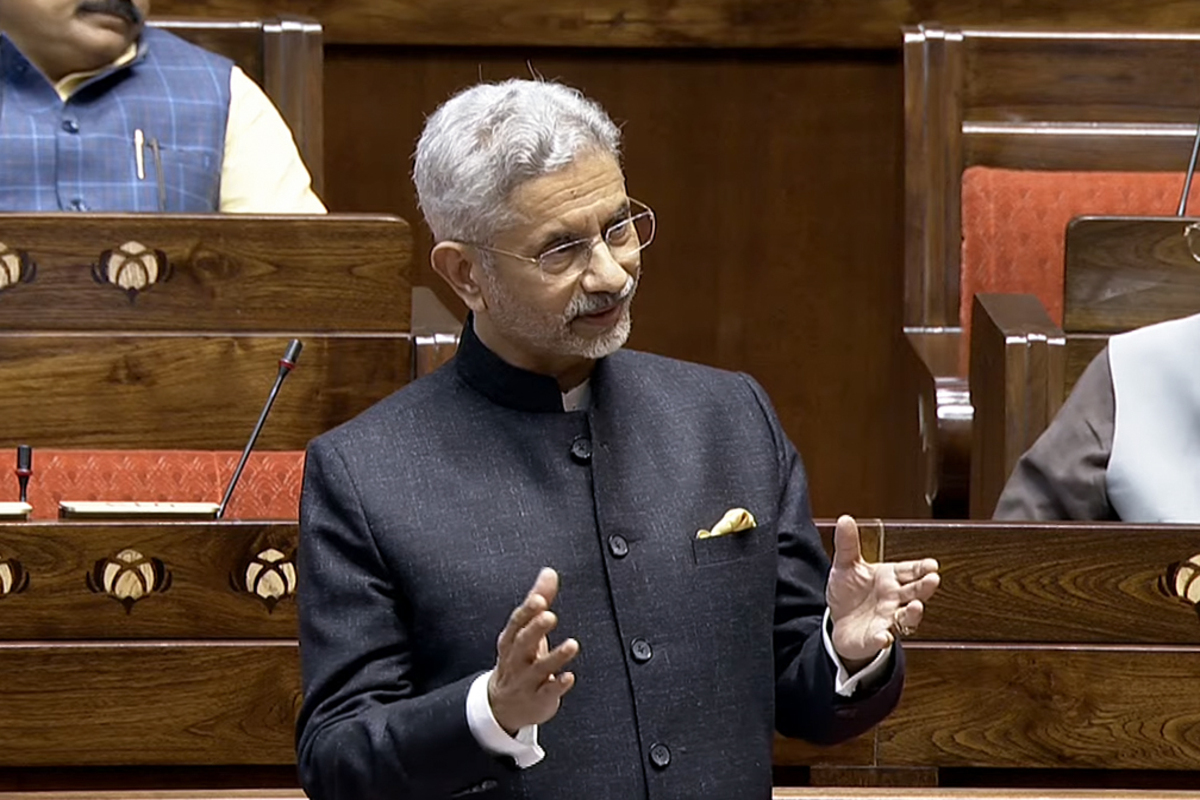India, China discuss management of peace, tranquility in border areas
External Affairs Minister (EAM) S Jaishankar held a meeting with China’s Foreign Minister Wang Yi on the sidelines of G20 Foreign Ministers’ Meeting in Johannesburg, Jaishankar.
The high-level meeting between External Affairs Minister S. Jaishankar and Myanmar’s Deputy Prime Minister Than Swe underscores the complex and multifaceted relationship between the two neighbouring countries.

External Affairs Minister S. Jaishankar (Photo:ANI)
The high-level meeting between External Affairs Minister S. Jaishankar and Myanmar’s Deputy Prime Minister Than Swe underscores the complex and multifaceted relationship between the two neighbouring countries. Amid Myanmar’s on-going civil war and political turmoil, the discussions reflect India’s strategic and humanitarian concerns, which are rooted in both regional stability and bilateral interests. One of the central themes of the meeting was the impact of Myanmar’s civil war on India’s North-eastern states.
The protracted conflict, involving pro-democracy militias and Myanmar’s military government, has spilled over into border regions, exacerbating security and humanitarian challenges. For India, this poses significant threats, not just in terms of cross-border violence but also through the influx of refugees. The shared ethnic ties between border communities in the two countries add another layer of complexity, as the exodus of Myanmar citizens into Indian states necessitates a sensitive and coordinated response to maintain regional harmony. India’s concerns are further amplified by the surge in illegal activities emanating from the conflict zones.
Advertisement
Narcotics trafficking, arms smuggling, and human trafficking have reportedly escalated since Myanmar’s political crisis deepened. These illicit activities not only undermine regional security but also threaten India’s internal stability. By highlighting these issues, Mr Jaishankar signals India’s intent to curb these transnational crimes and calls for stronger bilateral cooperation. The plea for Myanmar’s cooperation in securing the safe return of citizens trapped in conflict zones like Myawaddy is indicative of India’s proactive stance in protecting its nationals abroad. This humanitarian concern also aligns with India’s broader regional strategy, which emphasises the protection of human rights and the promotion of democratic values.
Advertisement
Mr Jaishankar’s call for a return to democratic governance in Myanmar reflects India’s consistent advocacy for democracy in its neighbourhood, even as it navigates the complexities of engaging with Myanmar’s military regime. India’s diplomatic approach, as evidenced in this meeting, is marked by a delicate balance of principled standpoints and pragmatic engagement. While India continues to press for democratic transition in Myanmar, it simultaneously retains functional ties with the current military government. This dual strategy ensures that India remains a relevant and influential player in the region, capable of addressing immediate security concerns while advocating for long-term political solutions. Furthermore, the recent suspension of the ‘free movement regime’ and the decision to fence the IndiaMyanmar border illustrate India’s shift towards a more controlled and secure border management system.
This move, while potentially straining traditional cross-border interactions, is aimed at mitigating the security risks posed by the current instability in Myanmar. India’s multifaceted approach, which combines humanitarian concerns, security imperatives, and democratic advocacy, underscores its strategic depth in handling the situation. As Myanmar grapples with its internal challenges, India’s engagement will likely continue to be a blend of support for democratic ideals and pragmatic measures to safeguard its national interests. This nuanced strategy not only strengthens India’s position as a regional power but also contributes to broader efforts for peace and stability in Southeast Asia.
Advertisement